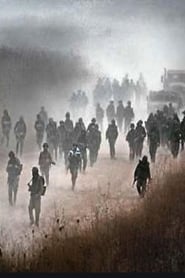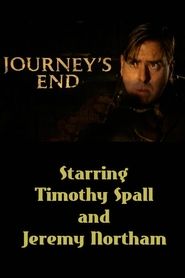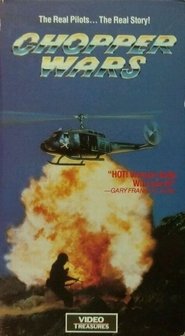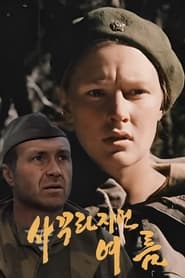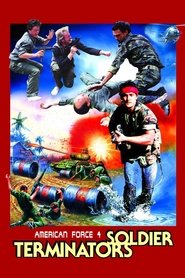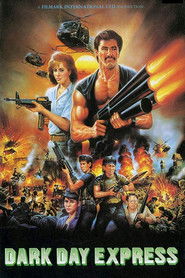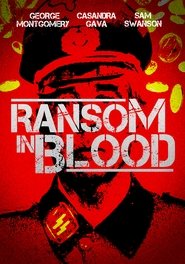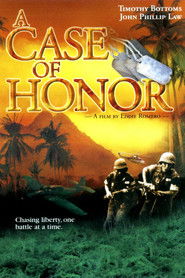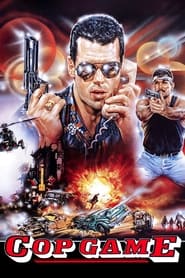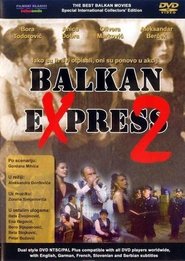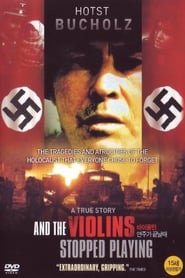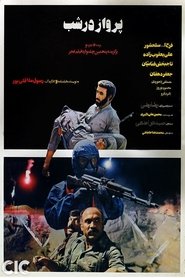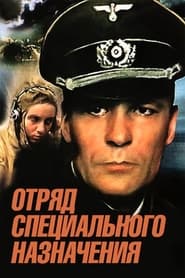New War Movies on Pantaflix - Page 305
-
Meyl
1988
Meyl
1988
"The Crow" - During the meaningless war years, a new lifestyle emerged in Lebanon : neither capitalist nor socialist. A military lifestyle. A whole generation of Lebanese were born and raised in war climate as a result of their inclination towards death and confusion. This generation does not imagine another life. The sounds of automatic fireworks are mixed with the sounds of folk instruments at every holiday or family celebration. -
Journey's End
1988
Journey's End
1988
star 7A British Company in the WWI trenches await an inevitable German attack in this 1988 adaptation of R.C. Sherriff's play. -
Chopper Wars
1988
Chopper Wars
1988
Fly low, blasting everything in front of you to pieces was one version. The other was send light helos, like the Loach, teamed up with two gunships. Together known as "Pink Teams" they would fly low trying to draw enemy fire. When the V.C. opened up, the gunships would strike quickly with rockets and machine guns. The tactic known as Recon by Fire is just one of the operations you will experience firsthand in "CHOPPER WARS." It is a story about one of the most devastating weapons used in the Vietnam War, the Viet Cong's worst nightmare--the helicopter. "To the grunts, they were a godsend--to the enemy they were beasts from Hell--the "CHOPPERS!" -insane copy from the back of the VHS box. -
Wartime
1988
Wartime
1988
star 4.7While on a seemingly routine delivery run for the Brigadier, Benton finds himself close to his childhood home, where ghosts from his past have never rested easily… Trapped in a nightmare world where past and present are one, will he be lost forever or can he fight his way back to reality, where he is desperately needed? -
From Spring to Summer
1988
star 5This is a Democratic People’s Republic of Korea and Union of Soviet Socialist Republics co-production. This film is set during World War II, and is about a female Russian soldier named Masha. She is on a mission to discover a secret Japanese base in Korea. Everybody who accompanies her on the mission shortly dies, and she’s forced to stay with a local fisherman. She is trying to get the information about the base location back to the Russian army, because if she doesn’t, the Japanese will unleash the “Sakura Plan”, which is an all-out biological warfare assualt on the world. -
Soldier Terminators
1988
Soldier Terminators
1988
star 4A secret group of warriors for freedom against oppression in the South Pacific. consisting of secretly trained marines, performs surgeries on behalf of an elitist organization, they have in mind when the purpose of recovery of the control of the region achieved not let the group of mercenaries who used to feel strong, from the fear that such mercenary groups very easily can be found on the opposite side. To cover this eventuality hire in Alexander Sampson, not his own secret commando group, the conflict of baroutokapnismenon warriors of two specific groups will be ruthless ... -
Red Lotus
1988
Red Lotus
1988
star 6.3Set in a small village in Vientiane Province in the early 1970s. Pathet Lao troops have gained the upper hand over the US-backed Royal Laotian army. The government wants to use the village as a base for a counter-offensive. -
Dark Day Express
1988
Dark Day Express
1988
star 2The Iron Relic, a priceless treasure, is lost. Dr. Raymond has been searching for the relic for the last 20 years. -
Ransom
1988
Ransom
1988
star 5Against the glamorous backdrops of the French Riviera and Yugoslavia's Adriatic coast, children of members of a U.S. WWII bomber squad search for the former commandant of an infamous German concentration camp who was responsible for their parents' torture and murders. Aided by a surviving crew member Steve Fuller, and Inspector Marko Simic of the "INTERPOL," they begin an action packed manhunt from Trieste to Cannes, following the trail of the bullet-riddled corpses left by General Von Brock. -
Fortitude
1988
Fortitude
1988
A three-minute long insight into the life of completely unusual people – a group of pacifists forced into hiding in the cellar of a ruinous house to escape a war tribunal. The difficulties of war are manly endured by the film’s characters. This film, like most of Yufit’s works, shows his love of 1920’s avant garde cinema, which was considered the highest pinnacle in cinematography. The director believes the art of moving pictures was more heartfelt before sound and colour. “The development of technologies is not a particularly positive thing for human existence,” says Yufit. —Arsenals Film Festival -
Saigon Commandos
1988
Saigon Commandos
1988
star 5A series of drug-related murders haunt Saigon. Ex-Green Beret Mark Stryker and his MP's must find the culprits. With the help of Jean Lassiter, a nosey reporter covering the crime beat, Stryker uncovers the involvement of corrupt politicians in the heroin trade and in the killings. But before he can pin them down, Stryker is framed for the murder of his commanding officer and now he must clear his name, free Lassiter from her captors, and stop his men from carrying out their own kind of vengeance before it is too late. -
A Case of Honor
1988
A Case of Honor
1988
star 5A Case of Honor is a 1991 film directed by Eddie Romero. After escaping from a Vietnamese pow camp where they had suffered for five years, five American soldiers attempt to get out of the country before being spotted by Russian and Vietnamese -
Robowar
1988
Robowar
1988
star 4.3A group of commandos heads into the jungles of Venezuela on a highly classified mission and encounters a robotic killing machine. -
Cop Game
1988
Cop Game
1988
star 4.7In the final days of the Vietnam War, someone is killing the officers of the elite Cobra Force. Two undercover M.P.'s are assigned to the case. The trail leads from the streets of Saigon to the war zone. -
The Heroes
1988
The Heroes
1988
star 4.8Based on a true story, The Heroes follows one of the most extraordinary and heroic exploits of World War II. After months of rigorous training in the north of Australia, a team of 14 men, most barely out of their teens, set sail from Cairns on board a leaky old fishing boat called 'The Krait'. Their mission, code-named Operation Jaywick, became a tense voyage through thousands of kilometres of Japanese held territory to launch a daring attack on Singapore Harbour. The raid is a success but within sight of safety they encounter a Japanese destroyer, and all prepare to die rather than be taken prisoner. -
Balkan Express 2
1988
Balkan Express 2
1988
star 4.4A group of musicians, whose band is called "Balkan express", in fact a quintet of small-time crooks , trying to make some money in Nazi-occupied Serbia. -
And the Violins Stopped Playing
1988
star 7.5This is the true story about a group of Romani's (gypsy) in occupied Poland during World War II as they confront the atrocities and tragedies of a forgotten holocaust. -
The Flight in the Night
1987
star 2During Iran-Iraq war a group of Iranian soldiers are surrounded by Iraqi army. Four soldiers are chose to go get help but only one manages to make it through enemy lines. -
Good Morning, Vietnam
1987
star 7.3A disk jockey goes to Vietnam to work for the Armed Forces Radio Service. While he becomes popular among the troops, his superiors disapprove of his humor. -
Special Forces Squad
1987
 Netflix
Netflix
 Amazon Prime Video
Amazon Prime Video
 Apple iTunes
Apple iTunes
 Apple TV Plus
Apple TV Plus
 Disney Plus
Disney Plus
 Google Play Movies
Google Play Movies
 Paramount Plus
Paramount Plus
 Hulu
Hulu
 HBO Max
HBO Max
 YouTube
YouTube
 fuboTV
fuboTV
 Peacock
Peacock
 Peacock Premium
Peacock Premium
 Amazon Video
Amazon Video
 The Roku Channel
The Roku Channel
 AMC+
AMC+
 Kocowa
Kocowa
 Hoopla
Hoopla
 The CW
The CW
 Vudu
Vudu
 Starz
Starz
 Showtime
Showtime
 PBS
PBS
 Pantaflix
Pantaflix
 FXNow
FXNow
 Tubi TV
Tubi TV
 Kanopy
Kanopy
 Comedy Central
Comedy Central
 Crunchyroll
Crunchyroll
 Microsoft Store
Microsoft Store
 Redbox
Redbox
 Sun Nxt
Sun Nxt
 ABC
ABC
 DIRECTV
DIRECTV
 Crackle
Crackle
 Fandor
Fandor
 Plex
Plex
